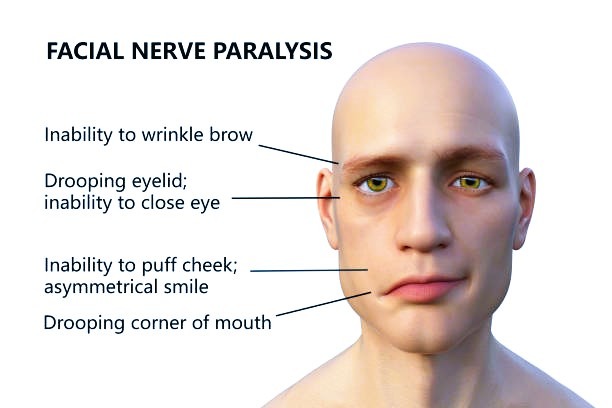Bells Palsy: Causes, Symptoms, Treatment, and Precautions
“Learn about Bell’s Palsy causes, symptoms, treatment, and precautions. Understand facial nerve paralysis and find expert advice. #bells palsy #facial muscle weakness


Understanding Bell's Palsy
Bell's Palsy is a condition that affects the facial nerves, causing temporary weakness or paralysis on one side of the face. It is named after Sir Charles Bell, a Scottish surgeon who first described the condition in the 19th century. Although the exact cause of Bell's Palsy is still unknown, it is believed to be related to viral infections, specifically the herpes simplex virus.
Causes of Bell's Palsy
While the exact cause of Bell's Palsy is not fully understood, it is thought to be related to viral infections. The most common theory is that the herpes simplex virus, which causes cold sores, may be responsible for the condition. Other viruses, such as the varicella-zoster virus (which causes chickenpox and shingles) and the Epstein-Barr virus (which causes mononucleosis), have also been associated with Bell's Palsy.
Symptoms of Bell's Palsy
The symptoms of Bell's Palsy usually come on suddenly and reach their peak within 48 hours. They typically affect only one side of the face and may include:
Weakness or paralysis of facial muscles
Drooping of the mouth or eyelid
Loss of the sense of taste
Inability to close one eye
Drooling
Increased sensitivity to sound in one ear
Treatment of Bell's Palsy
While there is no cure for Bell's Palsy, most people recover fully within three to six months. Treatment aims to relieve symptoms and promote healing. It may include:
Medications: Corticosteroids, such as prednisone, are often prescribed to reduce inflammation and swelling in the facial nerve.
Physical therapy: Exercises and massage techniques can help improve muscle strength and coordination.
Eye care: Lubricating eye drops or ointments may be needed to prevent dryness and protect the eye.
Precautions for Bell's Palsy
While there are no specific precautions to prevent Bell's Palsy, there are some general measures that can help reduce the risk of viral infections:
Practice good hygiene: Wash your hands regularly with soap and water, especially before touching your face or eating.
Avoid close contact with people who have viral infections, such as cold sores or the flu.
Stay healthy: Maintain a balanced diet, exercise regularly, and get enough sleep to support your immune system.
Manage stress: Chronic stress can weaken the immune system, making you more susceptible to infections.
In conclusion, Bell's Palsy is a temporary condition that affects the facial nerves, causing weakness or paralysis on one side of the face. While the exact cause is unknown, it is believed to be related to viral infections. Treatment focuses on symptom relief and promoting healing, and most people recover fully within a few months. By practicing good hygiene and maintaining a healthy lifestyle, you can reduce the risk of viral infections that may contribute to Bell's Palsy.
